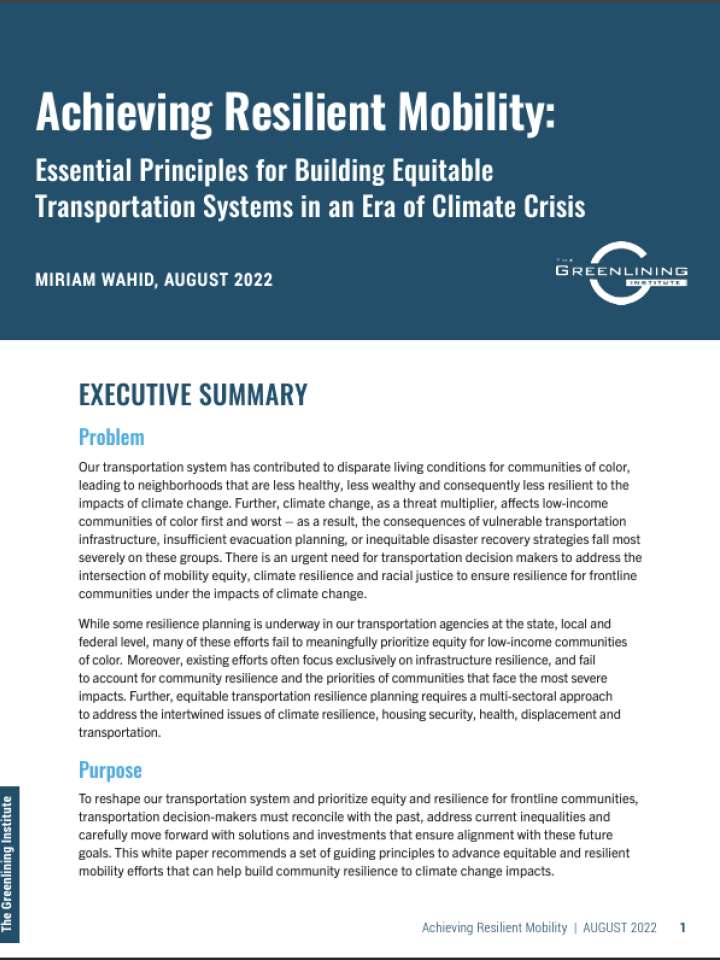Achieving resilient mobility
This publication advocates for reshaping the American transportation system and prioritizing equity and resilience for frontline communities; transportation decision-makers must reconcile with the past, address current inequalities, and carefully move forward with solutions and investments that ensure alignment with these future goals. This white paper recommends a set of guiding principles to advance equitable and resilient mobility efforts that can help build community resilience to climate change impacts.
The findings from this report include the following:
- Deliberate discriminatory policies and practices in transportation have systematically segregated low-income communities and communities of color to neighborhoods that are less healthy, less wealthy, and less resilient to the devastating impacts of climate change.
- Transportation and climate disaster response systems are biased toward protecting property and infrastructure, not the people in harm’s way.
- Existing transportation funding structures and project pipelines favor a top-down, siloed approach. As a result, transportation policies often fail to meet the specific needs of frontline communities.
Explore further
